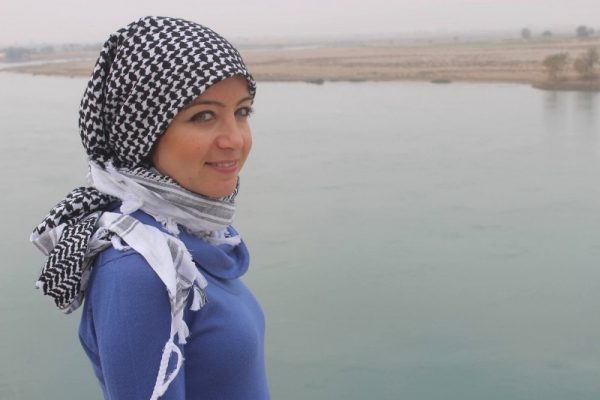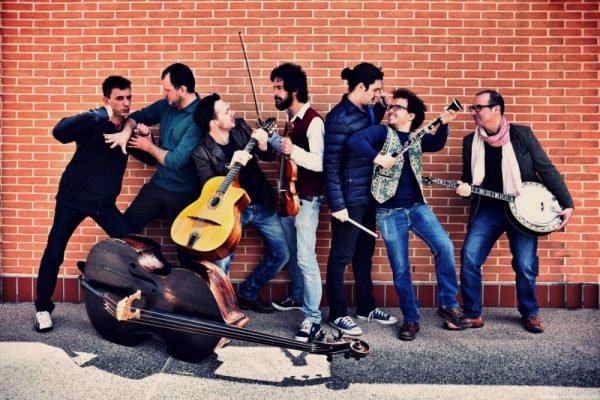
The top U.N. human rights official called on Tuesday for tens of thousands of detainees to be released from Syria’s prisons and for torturers and executioners to be brought to justice as part of a lasting peace.
Former Syrian detainees also testified before the U.N. Human Rights Council about their suffering and concern for men, women and children still in custody of the government or of extremist groups including al-Nusra and Islamic State. Mazen Darwish, a lawyer freed in 2015 after three years in jail, voiced outrage at the lack of international action. “We are speaking of a daily massacre going on for six years,” he told the 47-member forum.
“Today in a sense the entire country has become a torture-chamber; a place of savage horror and absolute injustice,” said U.N. High Commissioner for Human Rights Zeid Ra’ad al-Hussein. “Ensuring accountability, establishing the truth and providing reparations must happen if the Syrian people are ever to find reconciliation and peace,” he told the Geneva forum, which met on the eve of the sixth anniversary of the first peaceful protests against Syrian President Bashar al-Assad. (Reuters)
Syria’s war — along with the migrant crisis — will be one of the key topics of the International Journalism Festival #ijf17.
…
Covering the Syrian war as a journalist, activist and woman
ijf17talk by Zaina Erhaim

Zaina Erhaim was born in Idlib, Syria and educated in Damascus. She is the winner of the 2015 Peter Mackler Award for Courageous and Ethical Journalism and the 2016 Index on Censorship Freedom of Expression Award. In 2011 she was studying for a degree in journalism in London when the Syrian civil war broke out. She spent two years as a broadcast journalist with the BBC before joining the Institute for War and Peace Reporting (IWPR) and returning to northern Syria. As part of this project, Erhaim set up a series of blogs that aim to cover the history of the uprising and war through the eyes of Syrian women, by allowing regular citizens to write stories of their own experiences. Over the past few years, she has trained hundreds of citizen reporters from inside Syria, approximately a third of them women, in print and TV journalism.
The talk will be moderated by the Italian journalist Maria Gianniti.
…
Last Men in Aleppo: with Firas Fayyad
interview with Firas Fayyad
Firas Fayyad is the director of the Sundance-winning film The Last Men in Aleppo, filmed on the streets of Aleppo, now completely devastated by the civil war. The documentary premiered at the 2017 Sundance Film Festival, and follows the heroic rescue work of the White Helmets, perhaps the last ray of hope left for the civilians trapped in the city. Fayyad experienced the worst of the Assad regime: imprisoned in November 2011, he was tortured for months and now lives in exile.
He will be interviewed by the Italian war correspondent Amedeo Ricucci. Clips of the documentary will be shown.
…
Covering the end of the Islamic State?
panel discussion with Rania Abouzeid, Richard Colebourn, Firas Fayyad, Ayman Oghanna

The Iraqi Army, with western military backing, is currently engaged in a fierce battle against the so-called Islamic State inside Iraq’s second biggest city, Mosul. And the United States is right now deciding how to try and defeat the group in its Syrian stronghold of Raqqa. Could 2017 see the end of the ‘Islamic State’ as a power in the Middle East? Or how might the group, and its supporters in the region and beyond, respond? For journalists, covering the Islamic State and the territory it controls has long been immensely difficult — and now it seems only more dangerous.
The panel speakers have unique experiences of reporting inside Iraq and Syria since 2011. How should the media understand the situation on the ground right now? What complexities in the picture are we failing to communicate to audiences?
…
#Hacked: Al Jazeera’s interactive news game on Syrian cyberwar
presentation with Juliana Ruhfus
In October 2016, Al Jazeera launched #Hacked — Syria’s Electronic Armies. Following on from the award-winning Pirate Fishing — Interactive Investigation, #Hacked presents journalism in a game format and asks the user to investigate the Syrian cyber war whilst navigating hackers and viruses. Juliana Ruhfus will present #Hacked, touching on the Syrian cyberwar, the challenges of contacting hackers, and the idea of gamifying investigative journalism to reach new audiences.
…
Strong hands: we’ll tell you about Syria… with music
theatre show with Adovabadan Jazz Band, Alaa Arsheed, Isaac de Martin, Francesca Paci

How can music and arts have a key role in the challenges of our age? What role does beauty have in our complex world scenario? Media and social media are nowadays permeated with bad news, catastrophes, wars, and less space is left to beauty. It’s not a matter of forgetting or hushing up what is going on, it is more a question of giving hope by spreading beauty which is a precious seed underneath ruins and mud. This is the challenge for AlphaArt.org, a platform founded by Isaac de Martin and Alaa Arsheed in 2015 whose aim is to support social, human and cultural initiatives to help those whose lives have been ripped from under them.
Past experiences, present projects and future plans in conversation with Francesca Paci, Alaa Arsheed and Isaac de Martin. With simultaneous translation. To be followed by the concert Strong Hands.
…
The false enemy
in conversation with Corrado Formigli, Barbara Serra (in Italian)

Who are the new terrorists of the ISIS Caliphate and what are the responsibilities of the West, in particular Europe, in its flourishing? Is the erection of walls — either real or symbolic — against Syrian refugees a necessary iron fist, or does it merely attest to our short-sightedness when looking at conflict-torn regions? If the ISIS Caliphate is a menace, then it is desirable to listen to the voices of those who have been in the conflict zones where the self-proclaimed Islamic State seeks to extend its dominance.
…
Wives, slaves and conspirators: the women of Isis
panel discussion with Viviana Mazza, Marta Serafini, Lorenzo Vidino (in Italian)

The French services have confirmed it. “We have underestimated the role of women enrolled by Isis.” Women are not just victims of Isis. The scenario has evolved. In September 2016 French police discovered a Peugeot car parked next to Notre Dame cathedral. Three women had put a bomb there. Beyond the single French episode, there are many other women affiliated to the terrorist organization of Abu Bakr al-Baghdadi. France, Britain, Italy. Each country has its examples. Maria Giulia Sergio, who shouted her hatred against infidels via Skype; Meriem Rehaily, who left after having circulated a list of targets on the Internet. Some of these women have died. Others have returned. Others were enrolled in Europe as well as in the United States.
…

